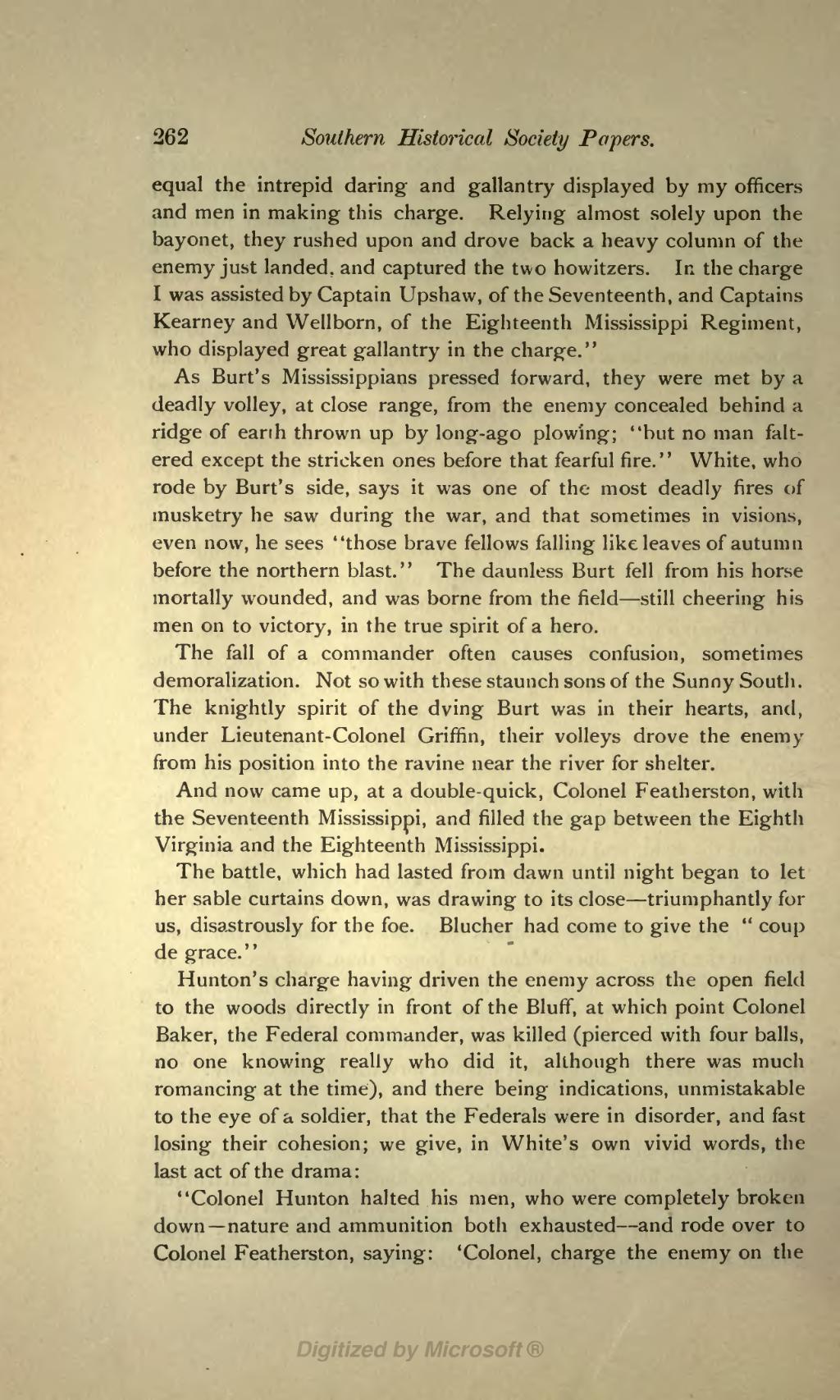262 Southern Historical Society Papers.
equal the intrepid daring and gallantry displayed by my officers and men in making this charge. Relying almost solely upon the bayonet, they rushed upon and drove back a heavy column of the enemy just landed, and captured the two howitzers. In the charge I was assisted by Captain Upshaw, of the Seventeenth, and Captains Kearney and Wellborn, of the Eighteenth Mississippi Regiment, who displayed great gallantry in the charge."
As Hurt's Mississippians pressed forward, they were met by a deadly volley, at close range, from the enemy concealed behind a ridge of earth thrown up by long-ago plowing; "but no man falt- ered except the stricken ones before that fearful fire." White, who rode by Burt's side, says it was one of the most deadly fires of musketry he saw during the war, and that sometimes in visions, even now, he sees "those brave fellows falling like leaves of autumn before the northern blast." The daunless Burt fell from his horse mortally wounded, and was borne from the field still cheering his men on to victory, in the true spirit of a hero.
The fall of a commander often causes confusion, sometimes demoralization. Not so with these staunch sons of the Sunny South. The knightly spirit of the dving Burt was in their hearts, and, under Lieutenant-Colonel Griffin, their volleys drove the enemy from his position into the ravine near the river for shelter.
And now came up, at a double-quick, Colonel Featherston, with the Seventeenth Mississippi, and filled the gap between the Eighth Virginia and the Eighteenth Mississippi.
The battle, which had lasted from dawn until night began to let her sable curtains down, was drawing to its close triumphantly for us, disastrously for the foe. Blucher had come to give the " coup de grace."
Hunton's charge having driven the enemy across the open field to the woods directly in front of the Bluff, at which point Colonel Baker, the Federal commander, was killed (pierced with four balls, no one knowing really who did it, although there was much romancing at the time), and there being indications, unmistakable to the eye of a soldier, that the Federals were in disorder, and fast losing their cohesion; we give, in White's own vivid words, the last act of the drama:
"Colonel Hunton halted his men, who were completely broken down nature and ammunition both exhausted and rode over to Colonel Featherston, saying: 'Colonel, charge the enemy on the
